
Find Help
More Items From Ergsy search
-

What is a defined benefit pension scheme?
Relevance: 100%
-

What is a defined contribution pension scheme?
Relevance: 86%
-

Are defined contribution pensions protected if the provider goes bust?
Relevance: 63%
-

Does the 2015 scheme have the same benefits as the earlier firefighter pension schemes?
Relevance: 62%
-

Do firefighters have to contribute to their pension schemes?
Relevance: 60%
-
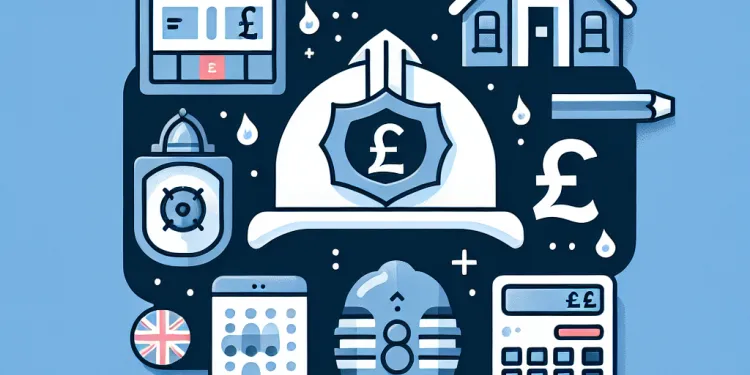
How is the pension calculated for firefighter schemes?
Relevance: 59%
-

Do all UK firefighters automatically join a pension scheme?
Relevance: 54%
-
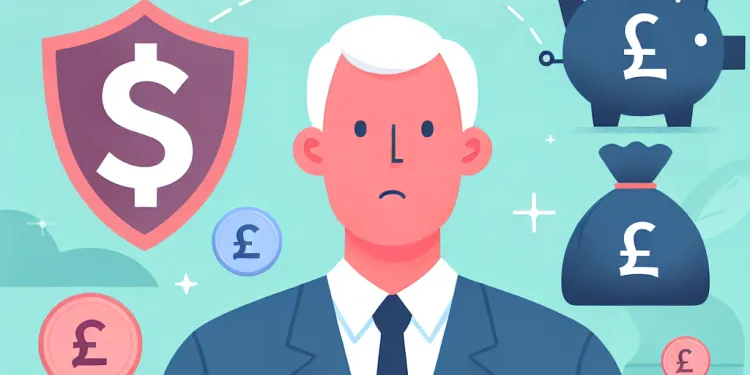
What is the Pension Protection Fund?
Relevance: 53%
-

What Happens When Pensions Go Bust! | Pension System Collapse UK
Relevance: 51%
-
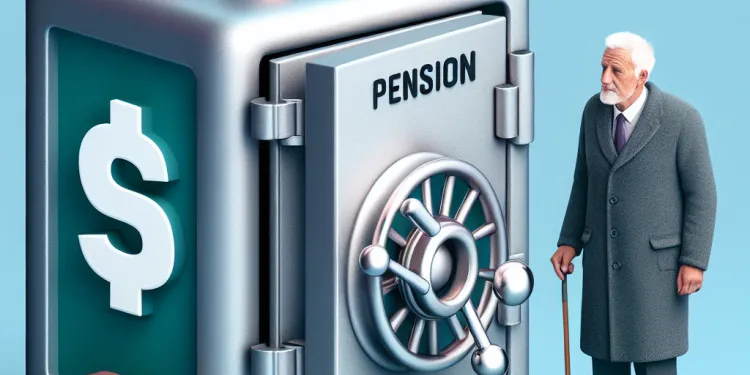
Can pensioners lose all their money if a pension provider fails?
Relevance: 51%
-

Pension rights for Firefighters in the UK
Relevance: 50%
-

What options are available for flexibly accessing firefighter pension benefits?
Relevance: 50%
-

Is it possible to buy additional pension benefits as a firefighter?
Relevance: 49%
-

Can pension scheme members influence how their pension is managed?
Relevance: 49%
-

Are firefighter pension benefits adjusted for inflation?
Relevance: 49%
-

Can firefighter pension benefits be divided in a divorce?
Relevance: 47%
-

Are firefighter pension benefits taxable?
Relevance: 47%
-

How does leaving the fire service before pension age affect my benefits?
Relevance: 45%
-

How does insolvency impact pension funds?
Relevance: 44%
-

What happens to the pension benefits upon the death of a firefighter?
Relevance: 43%
-

Police Pension Explained
Relevance: 42%
-

Can I nominate a beneficiary for my firefighter pension benefits?
Relevance: 42%
-

What is the minimum service period to qualify for firefighter pension benefits?
Relevance: 41%
-

Is the Pension Wise service reliable for pension advice?
Relevance: 41%
-
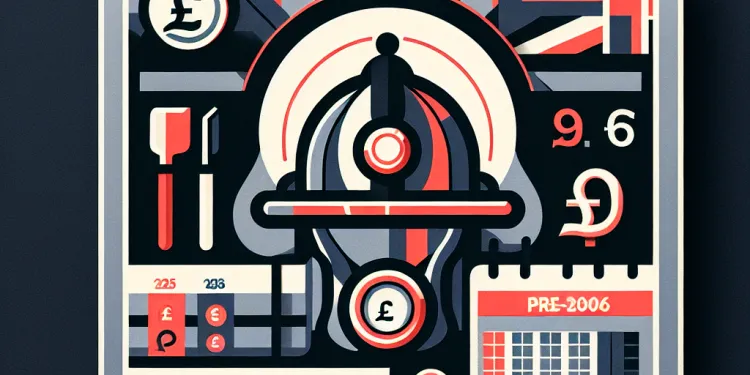
Are the pension rights different for firefighters who joined before 2006?
Relevance: 40%
-

What is the normal pension age for firefighters in the UK?
Relevance: 40%
-

NHS Pensions | All you need to know
Relevance: 40%
-

Who is eligible for the NHS Low Income Scheme?
Relevance: 40%
-

Who is eligible for compensation from the PPF?
Relevance: 39%
-
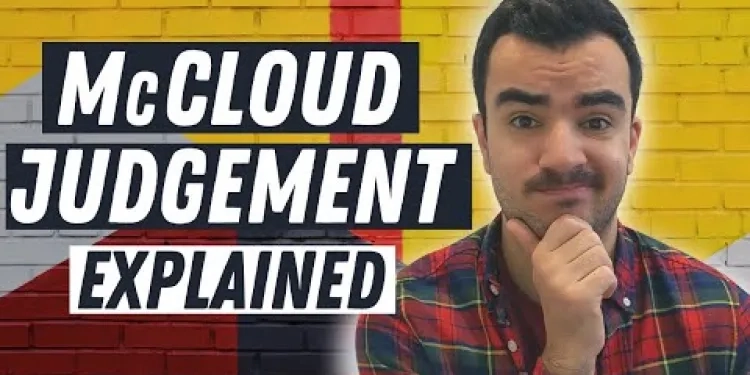
Public Sector Pension Changes | McCloud Judgement | NHS Pensions etc.
Relevance: 39%
-

Is there a pension scheme for retained (part-time) firefighters in the UK?
Relevance: 39%
-

Answering NHS Pension Questions | Opting-Out | How to Claim | Moving Abroad etc.
Relevance: 38%
-

Teachers Pension Explained | All you need to know | Final Salary & Career Average Earnings
Relevance: 37%
-

5 Ways You Can Contribute More To Your NHS Pension!
Relevance: 37%
-

Can retired firefighters access their pension early on the grounds of ill-health?
Relevance: 37%
-

What is the NHS Low Income Scheme?
Relevance: 36%
-

NHS Pensions | How to Claim? | Ill Health, Active & Deferred Members
Relevance: 36%
-

NHS Pension - Total Rewards Statement Explained
Relevance: 36%
-

Pension Proposals Spark Debate on Retirement Age and Benefits
Relevance: 36%
-

Can my employer provide pension advice?
Relevance: 36%
What is a Defined Benefit Pension Scheme?
A Defined Benefit (DB) pension scheme is a type of workplace pension that promises a specific retirement income based on salary and years of service. Unlike Defined Contribution (DC) schemes, where the retirement income depends on the investment performance of contributions, DB schemes provide a guaranteed income, making them a secure option for members.
How Does It Work?
In a Defined Benefit scheme, the amount you receive in retirement is determined by a set formula. This formula typically considers factors such as your salary history, tenure of service, and a defined accrual rate. For instance, a common formula might give you a pension based on a percentage of your average salary over your final years of employment, multiplied by the number of years you have been a member of the scheme.
Types of Defined Benefit Schemes
There are two primary types of DB schemes: Final Salary and Career Average. Final Salary schemes base your pension on your salary at retirement or when you leave the scheme, while Career Average schemes calculate your pension based on your average salary throughout your career. Both provide predictable and stable income in retirement, but they differ in how the final pension amount is calculated.
Advantages of Defined Benefit Schemes
The main advantage of a DB pension scheme is the predictability and security of income. Because the employer bears the investment risk, members are assured of a reliable income that is not subject to market fluctuations. Many schemes also offer inflation protection, meaning that pensions can increase over time to keep up with the cost of living. Additionally, DB schemes usually offer benefits to dependents, providing security for family members in the event of the member's death.
Challenges Facing Defined Benefit Schemes
Despite their benefits, DB schemes face challenges, including funding and sustainability. With increasing life expectancies, more funds are required to provide the promised benefits over more extended periods. Employers must contribute significant resources to meet these obligations, leading many private sector firms to close or freeze their DB schemes to new members. This shift reflects the financial strain and regulatory requirements placed on maintaining such schemes.
Conclusion
Defined Benefit pension schemes are a valuable source of retirement income, known for their predictability and stability. However, due to the pressures of longevity risk and funding requirements, their prevalence is declining in the private sector. Nevertheless, many public sector workers in the UK still benefit from these schemes, ensuring a guaranteed income for life.
What is a Defined Benefit Pension Scheme?
A Defined Benefit (DB) pension scheme is a type of work pension. It promises you a set amount of money when you retire. This amount is based on how much you earn and how long you work for your employer. It's different from other pensions where the money depends on the stock market. DB schemes give you a steady and safe income after you retire.
How Does It Work?
In a Defined Benefit scheme, the money you get when you retire is calculated using a formula. This formula checks things like how much you've been paid, how long you have worked, and a specific rate. A common way to work out your pension is to look at your average salary during the last years you worked and multiply it by the years you've been in the plan.
Types of Defined Benefit Schemes
There are two main types of DB schemes: Final Salary and Career Average. Final Salary schemes use your salary when you retire to work out your pension. Career Average schemes use the average of all your salaries in your career. Both types give you a steady income when you retire, but they calculate it differently.
Advantages of Defined Benefit Schemes
The best thing about a DB pension scheme is knowing how much you will get when you retire. It is safe because your employer takes care of the investment risks. This means you do not have to worry about the stock market affecting your pension. Some DB schemes also increase with inflation, so they keep up with living costs. Plus, they often give money to your family if you pass away, which helps look after them.
Challenges Facing Defined Benefit Schemes
There are some problems with DB schemes, such as having enough money for everyone who joins. As people live longer, more money is needed to pay their pensions. Employers have to put in a lot of money to keep these promises. This is why many companies stop offering new DB schemes. They find it hard to afford it and follow all rules.
Conclusion
Defined Benefit pension schemes are a great way to get money when you retire. They are stable and predictable. However, fewer companies are offering them because they are costly to maintain. Still, many workers in the public sector in the UK continue to benefit from these safe and secure pensions.
Frequently Asked Questions
What is a defined benefit pension scheme?
A defined benefit pension scheme is a type of pension plan where the benefits on retirement are determined by a set formula, usually based on salary and years of service.
How does a defined benefit pension scheme work?
It works by the employer promising to pay a specific amount upon retirement, calculated based on factors like salary history and duration of employment.
Who funds a defined benefit pension scheme?
Typically, the employer funds the scheme, although employees may also contribute in some cases.
What are the advantages of a defined benefit pension scheme?
Advantages include guaranteed income in retirement, predictable benefits, and protection against investment risks.
Are defined benefit pension schemes common?
They have become less common in the private sector, but are still prevalent in public sector jobs.
What happens to the pension if the employer goes bankrupt?
There are protections like the Pension Benefit Guaranty Corporation (PBGC) in the US or pension protection schemes in other countries to cover benefits up to certain limits.
How is the amount of pension determined?
It's typically calculated based on a formula involving average salary and years of service.
Can I take a lump sum from a defined benefit pension scheme?
Yes, many plans offer an option to take a reduced monthly pension and a lump sum payment.
What is the difference between a defined benefit and a defined contribution pension scheme?
A defined benefit scheme promises a specific payout at retirement, while a defined contribution scheme's payout depends on investment performance.
How is a defined benefit scheme taxed?
Pension income is generally taxable as ordinary income, but contributions may be tax-deferred.
Can benefits from a defined benefit pension scheme change?
Generally, accrued benefits do not change, but future accruals can be reduced if the plan sponsor makes amendments.
What happens if I change jobs?
Often, you become vested after a certain period, which means you retain the benefits you've accrued even if you leave the company.
Is there an age limit for starting to receive pension benefits?
Yes, pension benefits usually start at retirement age, which can vary by plan, but is commonly around 65.
What is vesting in a defined benefit pension scheme?
Vesting refers to the percentage of your accrued benefits that you are entitled to keep, usually increasing with more years of service.
Can I lose my defined benefit pension benefits?
Once vested, you generally cannot lose accrued benefits, but conditions might apply to future accruals.
What is an actuarial reduction?
An actuarial reduction decreases your pension benefits if you choose to retire early, to account for the longer period over which you will receive benefits.
Can I transfer my defined benefit pension to another scheme?
It may be possible, but transferring out of a defined benefit scheme needs careful consideration as it can involve significant risks.
What role does life expectancy play in a defined benefit pension?
Life expectancy can affect actuarial assumptions and the cost of providing benefits, but your benefits are guaranteed regardless of how long you live.
What information should be provided about my defined benefit pension?
You should receive an annual statement showing accrued benefits, plan rules, and funding status.
How are benefits protected from inflation?
Some schemes offer index-linked increases to benefits to help protect against inflation.
What is a defined benefit pension scheme?
A defined benefit pension scheme is a type of plan for saving money for when you stop working. It gives you a set amount of money every month when you retire. This amount is usually based on how long you worked and how much you earned.
Here are some tips to help understand:
- Picture It: Think about getting a regular allowance from your parents, but this one is for when you're older and not working.
- Ask for Help: Talk to someone you trust like a family member or a teacher if you want to learn more.
- Use Simple Tools: Use drawings or stories to help understand bigger ideas like pensions.
A defined benefit pension scheme is a type of pension plan. It tells you what you will get when you retire. The amount is based on your salary and how long you have worked there.
What is a defined benefit pension scheme and how does it work?
A defined benefit pension scheme is a type of plan for when you stop working. It gives you a set amount of money every month when you retire.
Your employer promises to pay you this money based on how long you worked and how much you earned. The longer you work and the more you earn, the higher your pension.
Here’s how it works:
- Work: You work for a company that offers this pension.
- Years: The more years you work, the more your pension grows.
- Salary: Your pension is also based on how much money you make while working.
- Retirement: When you stop working, you get a certain amount of money every month.
Tips:
- Use a calculator to help see how much pension you might get.
- Talk to your employer if you have questions.
The boss promises to give you money when you stop working. This money is worked out by looking at how much you earned and how long you worked there.
Who pays for a defined benefit pension plan?
A defined benefit pension plan is a type of retirement plan. It gives you money every month when you stop working.
The money for this plan usually comes from:
- Your employer: The company you work for puts money into the plan.
- You: Sometimes, you also put some of your pay into the plan.
If you find reading hard, you can:
- Ask someone to read it with you.
- Use a tool that reads the text out loud.
- Break it down into small parts and take your time.
Usually, the boss pays for the plan. Sometimes, workers might add money too.
Why is a defined benefit pension scheme good?
Good things about this are:
- You get money when you stop working.
- You know how much money you will get.
- You do not have to worry about losing money if investments go wrong.
Here are some tools you can use to help:
- Text-to-speech software can read it out loud for you.
- Highlighters can help you focus on important words.
Are defined benefit pension schemes common?
Pension schemes help you when you stop working. There are different kinds of pension schemes. One kind is called "defined benefit pension schemes." They give you a set amount of money regularly when you retire.
Defined benefit pension schemes are less common these days. Many companies now use other pension types.
If you find reading hard, try these tips:
- Use a ruler or your finger to help follow the words.
- Read out loud to hear the words.
- Ask someone you trust to read with you.
These jobs are not as common in private companies. But you can still find them a lot in government jobs.
What happens to your pension if your job closes down?
If the place where you work closes down, your pension can be safe. A special group might help protect your pension. They make sure you still get some money when you stop working.
If you find this hard, try reading with someone. They can help explain. You can also use a ruler or your finger to follow the words. This can make reading easier.
There are protections for pensions. In the US, there is the Pension Benefit Guaranty Corporation, or PBGC. Other countries have their own protection plans. They help make sure people still get some pension money if there are problems.
If you have trouble reading, try using a highlighter to mark important words. Reading with a friend or family member can also be helpful. There are also apps that read text out loud if that makes it easier for you.
How do we decide how much pension money you get?
You can figure it out using a simple way. It uses your average pay and how many years you've worked.
Can I get a big payment from my work pension?
A defined benefit pension is a type of work pension you get when you retire. It gives you money every month.
Sometimes, you can take a big payment all at once. This is called a lump sum.
To find out if you can do this, talk to your pension manager.
You might also want help from someone who knows about pensions, like a financial advisor. They can help you understand your choices.
Using a calculator can help you see how much money you might get.
Yes, many plans let you get less money every month and some money all at once.
How is a defined benefit pension different from a defined contribution pension?
A defined benefit pension gives you a set amount of money when you retire. This amount is based on your salary and how long you worked.
A defined contribution pension depends on how much money you and your employer put into it. It also depends on how the investments do. When you retire, you use this money for your retirement.
It is helpful to use pictures or charts to show how each type works. Also, talking to someone who knows about pensions can be useful.
A defined benefit plan gives you a set amount of money when you retire. But a defined contribution plan gives you money based on how well your investments do.
How do taxes work for a defined benefit pension?
Pension money is like getting a paycheck when you stop working. You usually have to pay tax on it, just like when you get paid from a job. But the money you put into a pension might not have tax right away.
Can the money you get from a defined benefit pension change?
Usually, the benefits you have earned do not change. But, the plan can give you less in the future if the company changes the plan.
What happens if I change jobs?
If you get a new job, don't worry! Here is what you can do:
- Tell your new job: Let them know about your old job and any important things they need to know.
- New job papers: Fill out any forms they give you.
- Talk to someone: Ask a friend or supporter to help you if you feel confused.
Using pictures or drawing can help you understand these steps better!
After you work for a company for a while, you might get to keep some benefits even if you leave the company. This is called being "vested."
How old do you need to be to get your pension money?
Yes, people usually get pension money when they stop working. This is called retirement. Most people retire when they are 65 years old, but it can be different for each person.
What does "vesting" mean in a defined benefit pension plan?
"Vesting" means you get to keep the money from your pension. In a defined benefit pension plan, you earn the right to this money over time.
Think of it like a reward system. The longer you stay in the plan, the more of the reward you get to keep.
If you're not sure about any words, you can ask someone to explain or use an online dictionary.
Vesting tells you how much of your benefits you can keep. The more years you work, the more you can keep.
Can I lose my defined benefit pension benefits?
A defined benefit pension is money you get when you stop working.
Sometimes, people worry if they will still get this money. Here are ways you can feel better:
- Check with your pension provider: They can give you updates about your pension.
- Ask questions: Always ask if you are not sure.
- Read letters and emails: Look at what your pension provider sends you.
- Get help: If you're confused, talk to someone you trust or ask an expert.
Don't worry, these steps can help you understand your pension better.
Once you have earned your benefits, you usually can't lose them. But there might be rules for earning more benefits in the future.
What does "actuarial reduction" mean?
"Actuarial reduction" is when you get less pension money. This happens because you choose to get your pension early. Because you get money for more years, each payment is smaller.
If you need help understanding, you can:
- Ask someone you trust to explain it to you.
- Use a calculator to see how much money you would get.
- Watch a video that tells you more.
If you decide to stop working and get your pension money earlier, you might get less money each month. This is because you will be receiving the money for a longer time.
Can I move my defined benefit pension to another plan?
You might want to move your pension to a different plan. A defined benefit pension gives you money when you retire based on how long you worked and how much you earned.
Before you move it, talk to someone who knows a lot about pensions, like a pension advisor.
A pension advisor can help you understand if moving your pension is a good idea.
To help make this decision, you might want to:
- Use simple tools like a calculator to see how much money you'll get.
- Ask questions about anything you don't understand.
- Write down important information so you don't forget it.
You might be able to switch out of a defined benefit scheme, but you need to think carefully because there could be big risks.
How does how long people live affect a set money plan for when they stop working?
How long people live can change the guesses experts make about money and benefits. But don’t worry, your benefits stay the same no matter how long you live.
What should I know about my defined benefit pension?
You have a pension plan called a "defined benefit pension."
Here's what you should know about it:
- How much money you will get when you retire
- When you can start getting the money
- If the money can go to your family if you pass away
You can use tools like picture cards to help understand.
If you need help, ask someone you trust to explain it to you.
You should get a report every year. This report tells you:
- How much money you have saved up.
- The rules of your plan.
- If the plan has enough money.
As you read, here are some helpful tools you can use:
- Text-to-Speech Tools: These tools can read the text out loud for you.
- Highlighting Important Parts: Use a highlighter or underline important information to remember it.
How do benefits stay the same when prices go up?
Some plans can give your money a boost so it does not lose value over time. This helps when prices go up.
Useful Links
This website offers general information and is not a substitute for professional advice.
Always seek guidance from qualified professionals.
If you have any medical concerns or need urgent help, contact a healthcare professional or emergency services immediately.
Some of this content was generated with AI assistance. We’ve done our best to keep it accurate, helpful, and human-friendly.
- Ergsy carfully checks the information in the videos we provide here.
- Videos shown by Youtube after a video has completed, have NOT been reviewed by ERGSY.
- To view, click the arrow in centre of video.
- Most of the videos you find here will have subtitles and/or closed captions available.
- You may need to turn these on, and choose your preferred language.
- Go to the video you'd like to watch.
- If closed captions (CC) are available, settings will be visible on the bottom right of the video player.
- To turn on Captions, click settings .
- To turn off Captions, click settings again.
More Items From Ergsy search
-

What is a defined benefit pension scheme?
Relevance: 100%
-

What is a defined contribution pension scheme?
Relevance: 86%
-

Are defined contribution pensions protected if the provider goes bust?
Relevance: 63%
-

Does the 2015 scheme have the same benefits as the earlier firefighter pension schemes?
Relevance: 62%
-

Do firefighters have to contribute to their pension schemes?
Relevance: 60%
-

How is the pension calculated for firefighter schemes?
Relevance: 59%
-

Do all UK firefighters automatically join a pension scheme?
Relevance: 54%
-

What is the Pension Protection Fund?
Relevance: 53%
-

What Happens When Pensions Go Bust! | Pension System Collapse UK
Relevance: 51%
-

Can pensioners lose all their money if a pension provider fails?
Relevance: 51%
-

Pension rights for Firefighters in the UK
Relevance: 50%
-

What options are available for flexibly accessing firefighter pension benefits?
Relevance: 50%
-

Is it possible to buy additional pension benefits as a firefighter?
Relevance: 49%
-

Can pension scheme members influence how their pension is managed?
Relevance: 49%
-

Are firefighter pension benefits adjusted for inflation?
Relevance: 49%
-

Can firefighter pension benefits be divided in a divorce?
Relevance: 47%
-

Are firefighter pension benefits taxable?
Relevance: 47%
-

How does leaving the fire service before pension age affect my benefits?
Relevance: 45%
-

How does insolvency impact pension funds?
Relevance: 44%
-

What happens to the pension benefits upon the death of a firefighter?
Relevance: 43%
-

Police Pension Explained
Relevance: 42%
-

Can I nominate a beneficiary for my firefighter pension benefits?
Relevance: 42%
-

What is the minimum service period to qualify for firefighter pension benefits?
Relevance: 41%
-

Is the Pension Wise service reliable for pension advice?
Relevance: 41%
-

Are the pension rights different for firefighters who joined before 2006?
Relevance: 40%
-

What is the normal pension age for firefighters in the UK?
Relevance: 40%
-

NHS Pensions | All you need to know
Relevance: 40%
-

Who is eligible for the NHS Low Income Scheme?
Relevance: 40%
-

Who is eligible for compensation from the PPF?
Relevance: 39%
-

Public Sector Pension Changes | McCloud Judgement | NHS Pensions etc.
Relevance: 39%
-

Is there a pension scheme for retained (part-time) firefighters in the UK?
Relevance: 39%
-

Answering NHS Pension Questions | Opting-Out | How to Claim | Moving Abroad etc.
Relevance: 38%
-

Teachers Pension Explained | All you need to know | Final Salary & Career Average Earnings
Relevance: 37%
-

5 Ways You Can Contribute More To Your NHS Pension!
Relevance: 37%
-

Can retired firefighters access their pension early on the grounds of ill-health?
Relevance: 37%
-

What is the NHS Low Income Scheme?
Relevance: 36%
-

NHS Pensions | How to Claim? | Ill Health, Active & Deferred Members
Relevance: 36%
-

NHS Pension - Total Rewards Statement Explained
Relevance: 36%
-

Pension Proposals Spark Debate on Retirement Age and Benefits
Relevance: 36%
-

Can my employer provide pension advice?
Relevance: 36%


